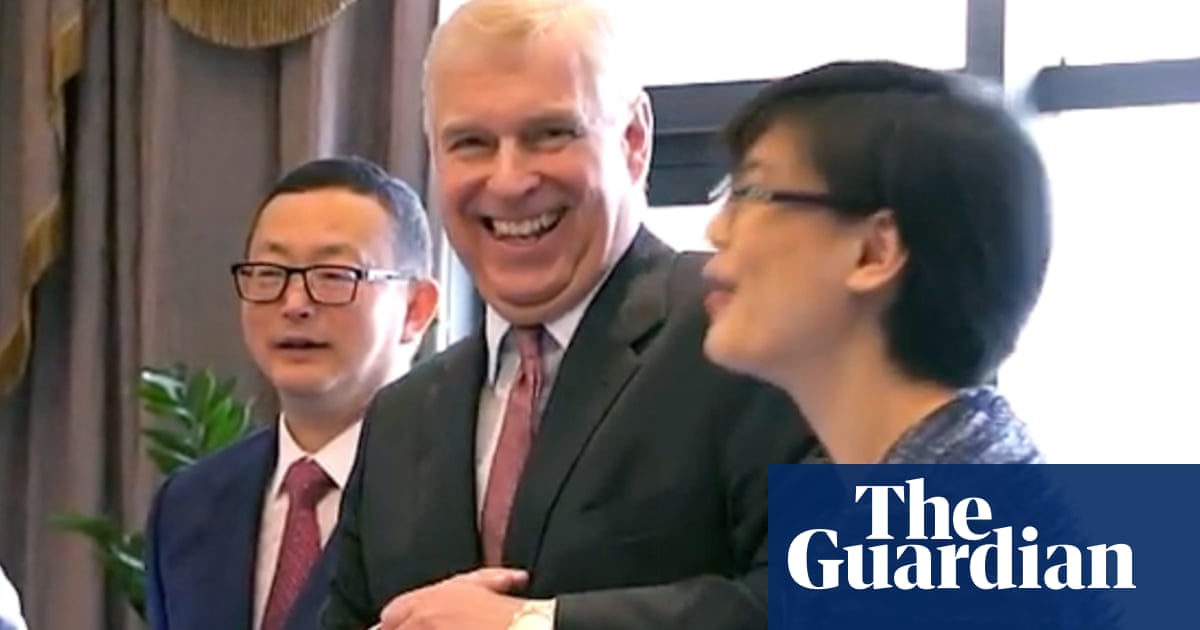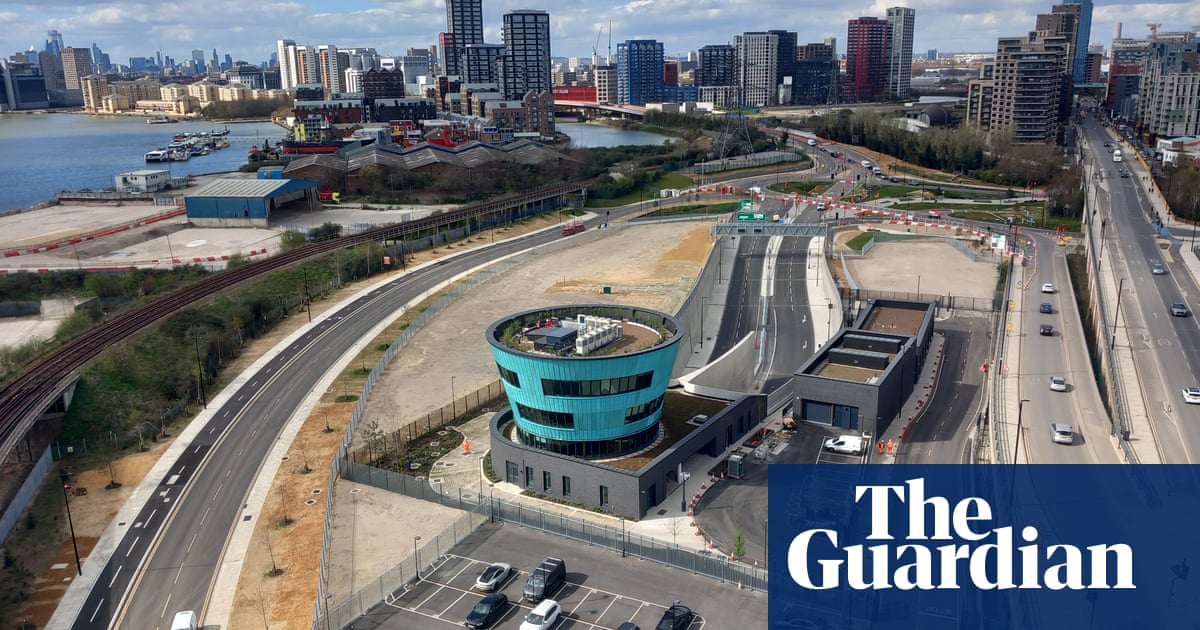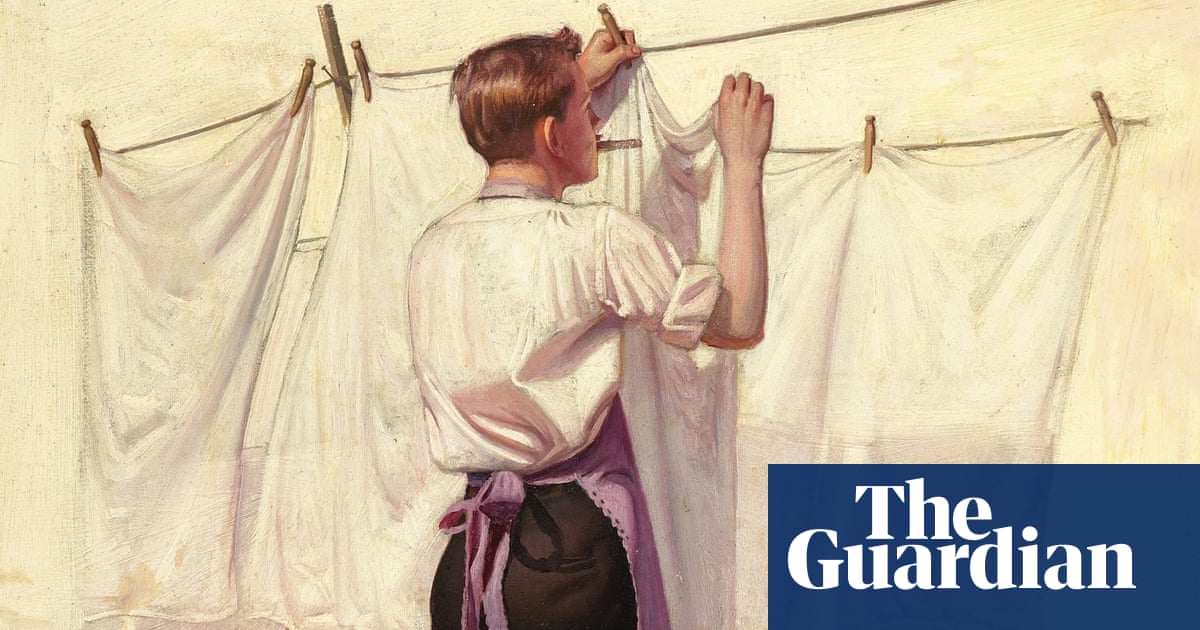In years gone by, the two members of the House of Lords had been political enemies, running the headquarters of rival parties during hotly contested general election battles. In October, however, they stood side by side to pay their respects to the former president of Azerbaijan.
A wreath laid at Heydar Aliyev’s grave in Baku, the capital of Azerbaijan, bore three names: Iain McNicol, Labour’s former general secretary, Darren Mott, the former chief executive of the Conservatives, and Tahir Gözel, a prominent local businessman who had paid for the peers’ visit.
Lord McNicol and Lord Mott are identified in a joint investigation by the Guardian and the Organized Crime and Corruption Reporting Project (OCCRP) as the most recent in a line of peers to have taken free trips to Azerbaijan, giving support to the government of President Ilham Aliyev.
Aliyev has held power since 2003, having taken over from his father who governed the country under the Soviets and was first elected in 1993 after a military coup.
All of the peers’ trips were properly registered and there is no suggestion they have broken any rules. However, human rights groups are concerned that endorsements given by members of the UK’s upper legislature risk legitimising an authoritarian state. Azerbaijan’s rulers have been accused of ethnic cleansing, the repression of political opposition, and imprisonment and persecution of journalists and activists.

Public shows of support by peers for Azerbaijan appear to have increased this year before the country hosted the Cop29 summit in Baku.
A number of peers have accepted paid-for trips to act as observers during elections, most recently for a ballot in the disputed Nagorno-Karabakh region, whose government was overthrown by Azerbaijan during a military offensive last year.
These peers have endorsed the polls they have observed, with one comparing them positively with UK elections. The UK government said the February 2024 presidential election – which was not observed by the peers – took place in a restrictive environment without genuine alternatives.
One senior Labour peer, David Evans, held business contracts with the state-owned oil company through his publishing company. His younger son secured an internship at the firm.
Lord Evans also made use of the House of Lords banqueting facilities for two events to support Azerbaijan’s interests. At one of these receptions, he recited a poem he had composed himself to mark the 30th anniversary of the former Soviet republic’s independence.
‘Karabakh … thank God we got it back’
Evans, a printing entrepreneur who supplied trade unions with ballots and campaign material and received his peerage from Tony Blair in 1998, is, in his own words, a “very good friend to Azerbaijan”. From April 2020 to May 2024, he was a member of the Azerbaijan all-party parliamentary group, established to develop good relationships between the UK and Azerbaijan.
In March 2022, Evans hosted an event in parliament’s red-carpeted Attlee Room to mark 30 years of diplomatic relations between the UK and the former Soviet state. Standing before the assembled dignitaries, he read out a poem he had composed to mark the occasion.
“This is a partnership that’s built to last/Throwing off the restraints of your Soviet past,” he proclaimed. The verses celebrated a partnership between BP and the state oil company, Socar, and Azerbaijan’s six-week war with Armenia in 2020. The name of the contested territory, Nagorno-Karabakh, was rhymed with “thank God we got it back!”.

In January 2023, Evans’ younger son, while working as a researcher in the Lords for his father, secured a three-month paid role with Socar’s trading arm in Geneva as a sustainability intern from January to March 2023.
Evans said his son paid “personally for his own accommodation, food and travel”. Socar said it had paid in line with Swiss minimum wage requirements, and that Evans’ son had been hired after consideration of potential conflicts of interest by its compliance team after he expressed an interest in a short internship.
Another banqueting room of the House of Lords was put to use by Lord Evans to promote Azerbaijan’s interests in the UK in October 2017. Records show Evans hosted a dinner for 60 people in the peers’ dining room overlooking the Thames, paid for by Socar.
In October this year, Evans hosted a breakfast reception in the Cholmondeley Room, on the terrace of the Houses of Parliament, marking the start of an energy summit in London. Azerbaijan’s ambassador to the UK, Elin Suleymanov, attended and met Philip Hunt, the UK minister for energy and net zero, who gave his support for Baku’s hosting of Cop29. “Very good to meet the Azerbaijan ambassador,” Hunt later tweeted.
Evans’ company, Senate Publishing, has received business contracts from Socar. Between 2015 and 2019, it produced three coffee table books for Socar promoting Azerbaijan. Evans said these were published on “a normal commercial basis”.
The first edition centred on the inaugural European Games in Baku, held amid what Human Rights Watch described as “the worst crackdown the country has seen in the post-Soviet era”. A number of human rights activists and media outlets – including the Guardian – were banned from reporting on the Games.
The publication opened with an interview with Aliyev, who spoke of “liberal laws and [a] favourable environment” for tourism and business.
Election monitoring
Evans has disclosed in the parliamentary register four trips to Azerbaijan to observe elections in 2015, 2018 and 2020 and a referendum in 2016 on amendments to the constitution to give Aliyev more power. The trips were paid for by the Azerbaijani government, its parliament and its London embassy.
Reports in Azerbaijan’s state news agency show Evans praising the ballots, with one report in 2016 describing him and others as “deeply impressed by what they saw during the monitoring of the referendum” and hailing “the methodology used in the organisation of the referendum and voting process”.

Evans said of the 2020 election that it had “taken place in accordance with relevant procedures”, local press reported. Independent election monitors have raised concerns about both the polls and the role of peers in endorsing the way they were conducted.
The European Platform for Democratic Elections (EPDE) criticised Evans in 2020 for his “overwhelmingly positive public assessments”, saying in a letter to the lord speaker that Evans “aimed at misinforming the Azerbaijan audience about the real international perception of the electoral process”. The speaker responded in a letter saying Evans’ visit “was not as part of an official delegation”.
Evans is not the only member of parliament’s upper chamber – where members are appointed rather than elected – to have supported Azerbaijan’s polls. In September, a year after 100,000 ethnic Armenians fled Nagorno-Karabakh during another military operation, the Liberal Democrat peer Qurban Hussain had his travel, accommodation and subsistence paid for by Azerbaijan’s parliament for a four-day trip to observe parliamentary elections in the region.
Local media reported that Lord Hussain had been invited by Suleymanov, the ambassador, to observe elections in the cities of Shusha and Fuzuli. At a press conference, Hussain described the elections as “not very different from what we see in the UK” and said: “I felt the joy of people in Shusha.” The EPDE called the elections “undemocratic”.
The EPDE’s head of electoral integrity, Lukasz Kondraciuk, said election monitoring could not be genuine if “the host regime pays your expenses”. He said parliamentarians who chose to take free trips to observe elections in Azerbaijan “serve as a tool to legitimise what the regime wants the world to believe is a true election”.
A spokesperson for Hussain said: “This visit was declared in accordance with the rules.”
Both Evans and Hussain registered their trips to Azerbaijan with the House of Lords registrar.
The UK Foreign Office, while welcoming some measures including the creation of a committee to consider election complaints, released a statement in February expressing concern over Azerbaijan’s recent presidential election, which was not observed by any peers, saying it had taken place in a restrictive environment lacking genuine political alternatives.
In a statement, the country’s embassy in London said the UK and Azerbaijan “enjoy a strong, multifaceted partnership that benefits both countries immensely” and it welcomed travel by parliamentarians “to see the situation on the ground with their own eyes”.
It accused the OCCRP of accepting funding from foreign governments pursuing political agendas. The OCCRP is a nonprofit funded by grants from governments, including the US, and private foundations.
Cop29 endorsements
For Gözel – an “entrepreneur, philanthropist, and president of the Qarabag football club”, according to the Tahir Gözel Initiative for Development (TGID), a non-profit he founded – the Cop29 summit offered an opportunity to promote Azerbaijan on the world stage.

It was at the Gözel non-profit’s expense that Mott and McNicol travelled to Azerbaijan to speak at a university and “meet with Cop29 officials and other national organisations”, according to their entries in the register of interests. Both peers declined to comment.
Fatima Mammadova, TGID’s chief operating officer, said Azerbaijan’s hosting of Cop29 imposed “an obligation upon all individual and corporate Azerbaijani citizens … to actively support climate resilience by encouraging the local and international community to hold itself accountable for the environmental agreements discussed and ratified during Cop29 and previous conferences”, and that TGID had invited “select UK parliamentarians” to support “resilience-building initiatives by connecting Azerbaijan’s youth with leading figures”.

.png) 3 months ago
27
3 months ago
27













































